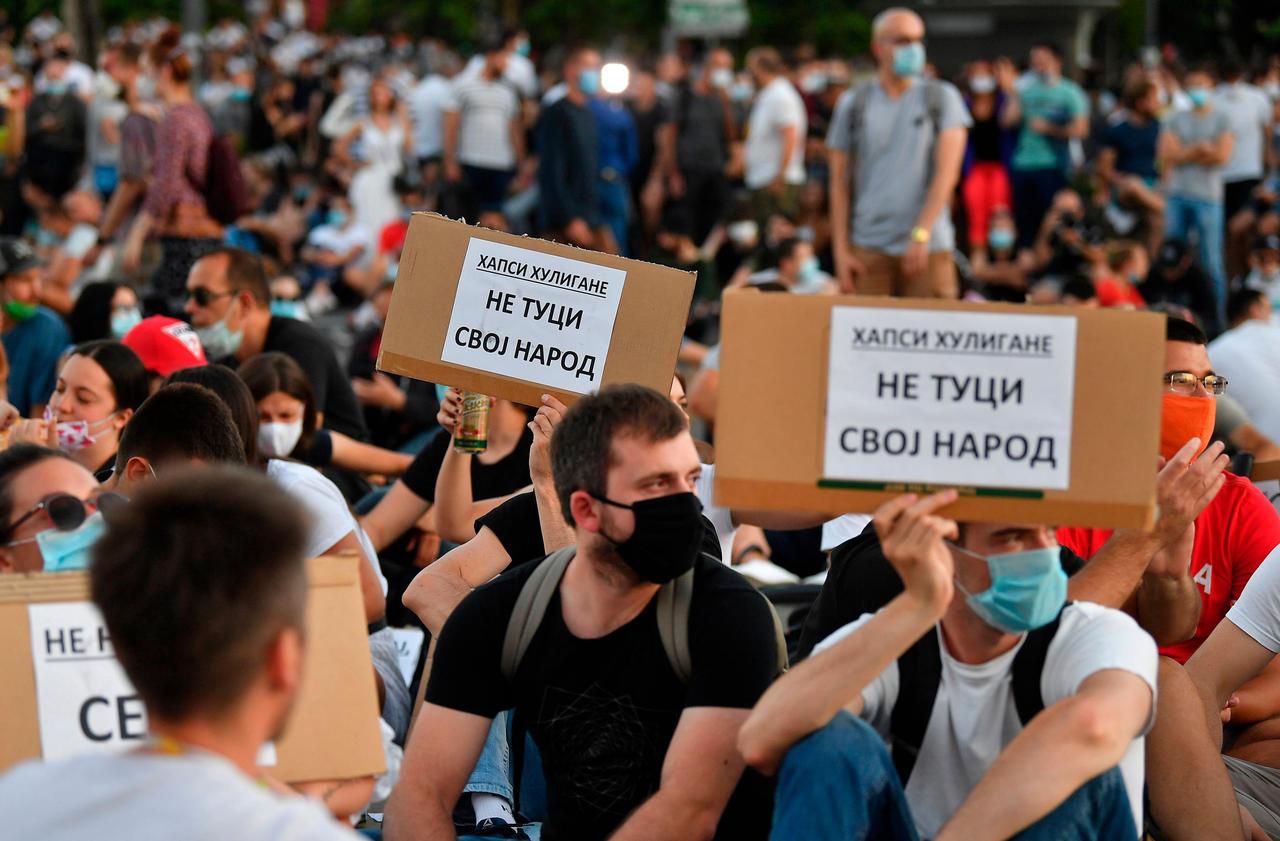In the heart of Europe, a region seems to be facing a "second wave". Several Balkan countries, in this south-eastern part of the continent between Turkey and central Europe, have faced a further increase in the number of daily cases and the number of deaths since the beginning of June.
This is particularly the case in Serbia, Bulgaria, Romania, North Macedonia, Montenegro and even in Bosnia and Herzegovina. Since March, we have analyzed the evolution of the number of new cases and deaths in these six countries. In order to smooth the daily statistical variations, we calculated, for each 24 hours, the average over the last seven days.
In Serbia "the situation seems out of control"
Whether for the number of new cases or for the number of deaths, we observe that the peak reached in April has almost always been exceeded.
The situation seems particularly worrying in Serbia, where the government is strongly suspected of having underestimated the figures for new positive tests for a long time. Until the legislative elections of June 21, the ruling party is accused of having done everything to minimize the gravity of the situation. A few days after celebrating their victory in this poll, without really respecting the barrier gestures, three senior Serbian officials were also positive at Covid-19.
Even though Serbia has been testing more people for several weeks, the number of tests is growing much slower than that of new cases. "The situation seems to be out of control because the Serbian authorities lied and, moreover, they very quickly eased the measures. At the beginning of June, football matches were again authorized with spectators, while many countries were still very careful, "notes Loïc Tregoures, lecturer at the Catholic University of Lille and specialist in the Balkans. The semi-final of the Serbian Cup between Partizan Belgrade and the Red Star Belgrade, on June 11, in front of 16,000 spectators, would have served to accelerate the epidemic.
Thousands of people demonstrated in Belgrade and various cities on Thursday evening to protest the authorities' handling of the health crisis after two nights of clashes with the police. "This violence is very often the case of disruptive elements sent by the government, to discredit the movement and to justify the use of force", judge Loïc Tregoures.
Elections on July 15 in North Macedonia
The health situation seems just as critical in Romania. From less than 400 new positive cases (weekly average) during the April peak, we have already reached nearly 450 this Friday. Concerning deaths, necessarily identified with a time lag compared to screening, we are already at the same level as the highest reached almost three months ago.
To deal with it, the government has taken a new series of measures, including quarantine for all people tested positive. But the Constitutional Court issued a shock decision on July 2, ruling that these restrictions on freedom were unconstitutional. More than 600 hospital patients have asked to go home, with the risk of infecting others.
Newsletter - The essentials of the news
Every morning, the news seen by Le ParisienI'm registering
Your email address is collected by Le Parisien to allow you to receive our news and commercial offers. Find out more
In North Macedonia, the festive rallies at the end of Ramadan on May 23 are implicated. And the government intends to maintain the holding of early parliamentary elections on July 15. Local reconfigurations were still decided by the authorities.
The same is true in Kosovo and Montenegro, which had nonetheless qualified itself as the first country to get rid of the virus. Undoubtedly too hastily: the country of more than 600,000 inhabitants counts more than 50 new daily cases on average weekly these last days, against only twenty at the time of the peak of April.
Greece and Italy close their borders
In all these countries, as in France, a relaxation of the population concerning the respect of barrier gestures is also pointed out by observers. But it is difficult to measure its impact precisely. In Serbia, to the discharge of the inhabitants, "" the chief epidemiologist says everything and its opposite overnight, "points out Loïc Tregoures.
Logically, this situation in the heart of Europe worries neighboring states. Starting with Greece, one of the countries most spared by Covid-19 on the continent. The Greek authorities have also decided to close the borders to all Serbian nationals until July 15, although the European Commission has placed Serbia on the list of states for which it recommends the reopening of the borders.
On Thursday, Italy also announced the closure of its doors to thirteen countries, including Bosnia and Herzegovina and North Macedonia. Before being imitated by France, where Public Health France notes this Friday "a tendency to increase the circulation of the virus"? The question "arises" and the possibility of closing the borders with certain countries is "on the table", said the president of the Scientific Council, Jean-François Delfraissy Thursday evening.
VIDEO. Covid-19, a "test for global solidarity", according to the WHO

